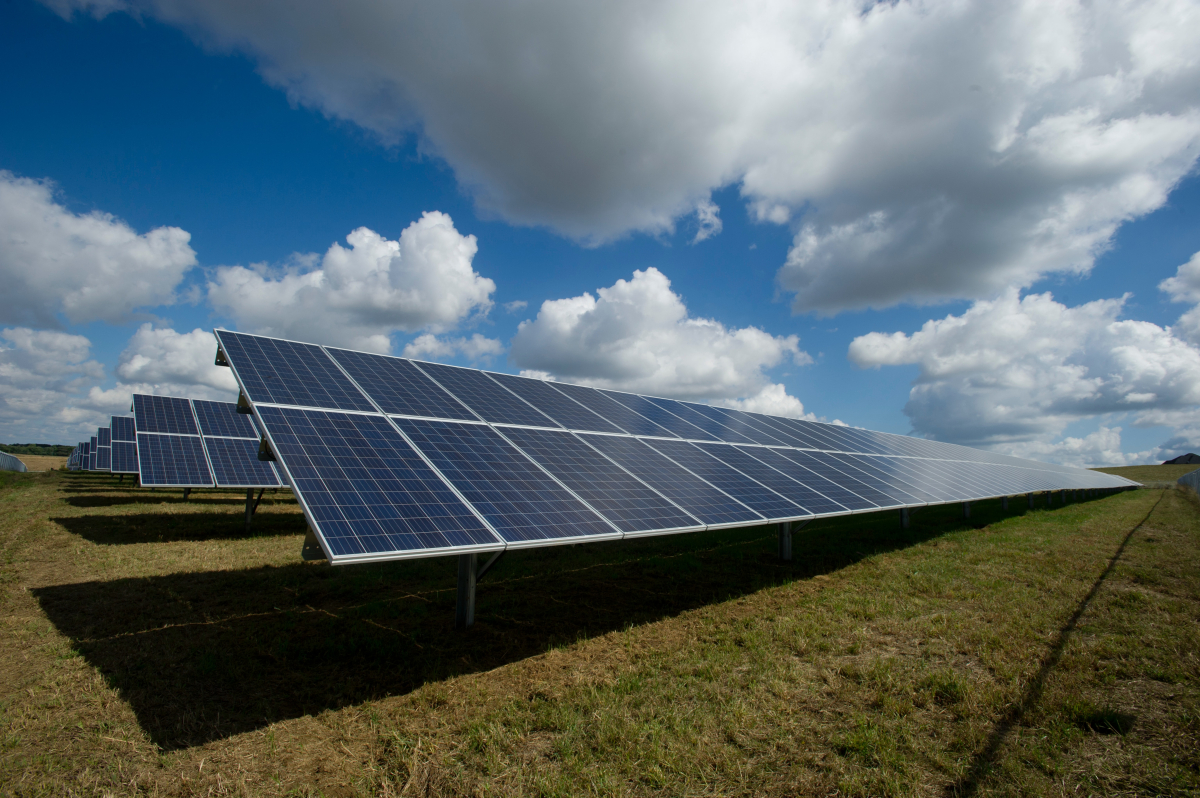Support strong Canadian climate journalism for 2025
Last week, Nova Scotians fought hard and won against a fee for solar customers that critics said would have effectively quashed the industry.
People felt so passionately about the issue that a GoFundMe campaign to fight the charge raised more than $37,000, said the organizer Solar Nova Scotia, a non-profit advocating for a completely renewable grid in the province.
Nova Scotia Power (NSP) has since backpedalled on the fee, but the series of events has left Yohan Peiris, owner of Renewly Solar, reflective in more ways than one. Since 2016, his company has worked to install solar in the Halifax area.
When he first heard about the charge, he had an inkling it wouldn’t come to fruition. Almost instantly, he saw his social media flooded with outrage, prompting people to write their MLAs and speak out.
“I think this is actually going to spark an even bigger adoption rate. I think more people are going to want to look into solar. I think that this is going to change the industry for good, to be honest,” he said.
He hopes the momentum keeps going and that other issues in the industry can be tackled with the same mindset and allyship, but he acknowledges it won’t be easy.
The proposal to charge solar customers a fee was included in a slew of changes proposed by NSP in late January. The utility asked the Nova Scotia Utility and Review Board for permission to approve a “net metering” fee, which would have charged solar customers around $8 per kilowatt of electricity, adding about $960 a year to the average solar customer’s bill.
Since NSP backpedalled on the charge on Feb. 2, the solar community says the series of events have laid bare systematic problems faced by the industry.
“... This doesn’t change the fact that Nova Scotia Power is reaping millions of dollars off the backs of hardworking Nova Scotians who are doing their damnedest to respond to the climate crisis,” said Gretchen Fitzgerald, national program director for Sierra Club Canada, which launched a campaign after the announcement.
“NSP has been making it hard all along for people to participate in the transition to clean renewable energy. That’s what private profit-driven monopolies do.”
NSP justified the charge by saying it would make things fairer for non-solar users. On sunny days when panels get lots of power, the excess is fed back into the grid and the utility gives them credit. The company said on days when solar customers don’t make as much power, they’re subsidized by other electricity customers.
The fee would have applied to new solar customers who signed up after Feb. 1, 2022. Solar users were quick to point out it would double the amount of time it would take to pay off their solar investments, and would effectively decimate the solar industry in Nova Scotia.
On Feb. 2, Premier Tim Houston stepped in with a public letter, and tweeted: “We're working now to introduce the necessary legislative and regulatory framework to deny the net metering system access charge requested by NS Power.” NSP president and CEO Peter Gregg followed up with his own statement, which said they would withdraw their application for the charge.
When NSP proposed the fee, it also asked for a 10 per cent rate increase for all power customers (with small and larger businesses seeing a higher rate hike) over three years and announced its Trenton 5 coal plant would have its shutdown delayed until 2024.

Coal has long had the reputation as the world’s dirtiest fossil fuel — it releases the most carbon and makes up 46 per cent of carbon emissions worldwide. In Canada, the federal government has committed to phasing out coal-fired electricity by 2030, while putting in place a $25-million coal transition fund.
Delaying the shutdown of coal, which made up over 60 per cent of Nova Scotia’s energy grid as of 2018, isn’t acceptable, said Tynette Deveaux with Sierra Club Canada. The province has plans to transition some of its grid to natural gas — a fossil fuel made primarily of methane, which is 86 times more powerful than carbon for the first 20 years it exists in the atmosphere.
It’s all counterintuitive to the province’s commitment to an 80 per cent renewable energy grid by 2030.
“It’s almost like it’s holding us for ransom,” she said.
“Nova Scotia Power has told us it needs more money from customers and from government to get going on the transition to clean renewable energy. Meanwhile, Nova Scotia Power and its parent company are raking in millions, if not billions, of dollars," she said.
"The CEO of Emera Scott Balfour got a $1-million raise in 2020, bringing his yearly compensation to nearly $8 million. And they want to charge people who are struggling to survive the financial turmoil of two years of COVID an extra 10 per cent for their electricity. There is something seriously wrong with this picture.”
Jodie Penwarden, who installed solar panels on her Halifax home in 2020, said even though the fee was defeated, it leaves her feeling more vulnerable than before. NSP could still pull something similar in the future unless more protections are given to the industry.
“I'm worried that it shook people's perceptions of the industry, the homeowners who were thinking of investing in green technology and the prospective buyers who might consider purchasing a home with solar panels,” she said.
“I hope there's no more drama in our province with archaic thinking and that we move forward as a leader in green technology.”






Comments
Anyone remember Cochabamba?!! The only difference is that the Bolivian people were defending their access to water - a COMMONS!! The same tactics are being used here by a greedy private corporation...!!